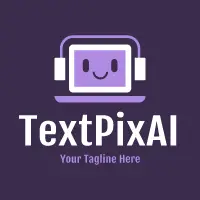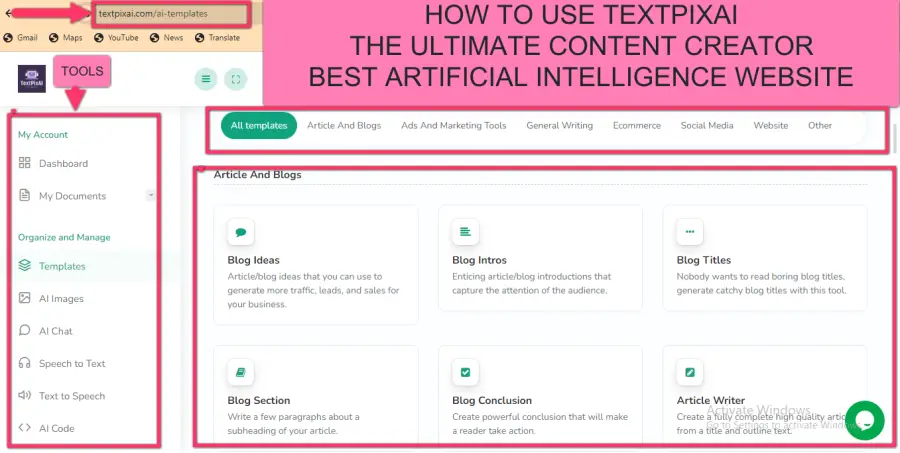The Impact of AI in Healthcare
Introduction
In recent years, the integration of Artificial Intelligence (AI) in healthcare has emerged as a transformative force, reshaping the industry and redefining patient care. This comprehensive article explores the multifaceted impact of AI in healthcare, from diagnosis and treatment to administrative tasks and drug discovery. By the end of this journey, you will gain a deep understanding of how AI is revolutionizing the healthcare landscape, making it more efficient, effective, and patient-centred.
You may also like to read:
I. Understanding AI in Healthcare
A. What is AI in Healthcare?
Artificial Intelligence, often referred to as AI, is a field of computer science that focuses on creating systems and technologies capable of performing tasks that typically require human intelligence. In healthcare, AI encompasses a wide range of applications, from diagnostic tools and treatment recommendation systems to administrative support and drug discovery.
AI in healthcare leverages advanced algorithms and machine learning to analyze vast datasets, identify patterns, and make predictions or recommendations. It represents the fusion of data, technology, and medicine, promising to revolutionize how healthcare is delivered and experienced.
B. The Growing Role of AI in Healthcare
The integration of AI into healthcare is not a recent development. It has evolved over several decades, with significant advancements in recent years. While AI applications in healthcare were initially limited, the past decade has witnessed an explosion in AI-driven solutions across the industry.
This exponential growth can be attributed to several factors, including the availability of large healthcare datasets, advances in machine learning algorithms, and the increasing demand for improved healthcare outcomes and efficiency. As a result, AI is becoming an integral part of the healthcare ecosystem, with the potential to transform nearly every aspect of the industry.
II. AI in Diagnosis and Disease Prediction
A. Radiology and Medical Imaging
Medical imaging, such as X-rays, CT scans, and MRIs, plays a crucial role in diagnosing various medical conditions. However, interpreting these images accurately can be challenging and time-consuming for healthcare professionals. AI is poised to change this landscape significantly.
AI-powered algorithms can analyze medical images with remarkable precision, aiding radiologists in detecting abnormalities, tumors, fractures, and other anomalies. These algorithms excel at pattern recognition, making them invaluable tools for early disease detection and improved patient outcomes.
B. Pathology and Histopathology
Pathologists examine tissue samples to diagnose diseases, such as cancer. AI is automating and enhancing this process, reducing the risk of human error and improving diagnostic accuracy.
By analyzing histopathological images, AI algorithms can identify subtle patterns and anomalies that may escape the human eye. This not only accelerates the diagnostic process but also enables pathologists to focus on more complex cases, ultimately benefiting patients.
C. AI-Powered Diagnosis Tools
Beyond radiology and pathology, AI-driven diagnostic tools are emerging in various medical specialties. These tools leverage machine learning to analyze patient data and symptoms, aiding healthcare providers in making accurate and timely diagnoses.
For instance, in cardiology, AI algorithms can analyze electrocardiograms (ECGs) to detect irregular heart rhythms, while in dermatology, they can assist in diagnosing skin conditions based on images. Ophthalmology also benefits from AI, with algorithms capable of identifying eye diseases from retinal scans.
These AI-driven diagnostic tools reduce the likelihood of diagnostic errors, leading to improved patient care and outcomes.
III. Treatment and Drug Discovery with AI
A. Personalized Treatment Plans
One of the significant advantages of AI in healthcare is its ability to tailor treatment plans to individual patients. Traditional treatments often follow a one-size-fits-all approach, but AI can change that.
By analyzing patient data, including genetic information and medical history, AI can recommend personalized treatment options. This not only increases the likelihood of successful treatment but also minimizes adverse effects, enhancing the overall patient experience.
B. Drug Discovery and Development
The process of discovering and developing new drugs is lengthy, expensive, and fraught with challenges. AI is disrupting this process by expediting drug discovery in several ways.
Machine learning models can analyze vast chemical databases, identifying potential drug candidates and predicting their efficacy. This not only accelerates the identification of promising compounds but also reduces the costs associated with drug development.
Additionally, AI plays a pivotal role in target identification, helping researchers pinpoint specific molecules or proteins involved in diseases. This targeted approach streamlines drug development and increases the chances of success.
C. Robotic Surgery and Assistance
Surgery requires precision and expertise, and AI-powered robotic systems are taking surgical precision to new heights. These robotic systems are equipped with advanced sensors and cameras that provide surgeons with a 3D view of the surgical site, enhancing their precision and control.
Moreover, some surgical robots can even perform minimally invasive procedures with greater accuracy than traditional methods. These advancements reduce the invasiveness of surgeries, minimize patient discomfort, and accelerate recovery times.
In addition to performing surgeries, AI can also provide real-time assistance to surgeons. During complex procedures, AI algorithms can analyze data, offer suggestions, and enhance decision-making, making surgeries safer and more efficient.
IV. Administrative Efficiency and Healthcare Management
A. Electronic Health Records (EHRs)
The healthcare industry generates an immense amount of data daily, and Electronic Health Records (EHRs) are central to managing this information. AI is playing a pivotal role in improving the efficiency and usability of EHRs.
AI-powered EHR systems can extract and structure patient data, making it more accessible to healthcare providers. These systems also assist in identifying relevant information, such as patient histories and test results, enabling quicker decision-making.
Furthermore, AI-driven EHRs enhance data accuracy, reduce administrative errors, and support interoperability between different healthcare providers, ensuring seamless patient care.
B. Predictive Analytics in Healthcare
Predictive analytics is a critical component of AI in healthcare. By analyzing historical and real-time data, AI can forecast disease outbreaks, patient admission rates, and resource needs. These insights are invaluable for healthcare facilities and public health agencies.
For instance, AI-powered models can predict the spread of infectious diseases, enabling timely interventions and resource allocation. Additionally, predictive analytics aids in managing hospital resources efficiently, reducing wait times, and improving patient satisfaction.
C. Telemedicine and Virtual Health Assistants
Telemedicine, the remote delivery of healthcare services, has witnessed tremendous growth, especially in recent times. AI plays a pivotal role in facilitating telemedicine services and improving the patient experience.
AI-driven virtual health assistants can conduct initial assessments, gather patient information, and provide guidance on seeking medical care. These virtual assistants extend healthcare access to remote and underserved areas, making it easier for patients to connect with healthcare providers.
Moreover, telemedicine services leverage AI for remote patient monitoring, particularly for chronic conditions. This continuous monitoring allows healthcare providers to intervene promptly in case of any anomalies, reducing hospital readmissions and improving patient outcomes.
V. Ethical Considerations and Challenges
A. Privacy and Data Security
As AI processes vast amounts of patient data, privacy and data security are paramount concerns. Healthcare organizations must ensure that patient information is safeguarded and compliant with data protection regulations.
AI developers must implement robust encryption and access control measures to protect patient data from unauthorized access or breaches. Moreover, healthcare providers must educate their staff on data security best practices to minimize the risk of data breaches.
Balancing the need for data access for research with patient privacy is an ongoing challenge that requires careful consideration and ethical guidelines.
B. Bias and Fairness
AI algorithms are only as good as the data they are trained on. If these datasets contain biases, the resulting AI models can perpetuate those biases, potentially leading to unfair or discriminatory outcomes.
Addressing bias in AI algorithms is a complex but essential task. It requires diverse and representative training data, as well as ongoing monitoring and adjustment of AI models to ensure fairness.
Ethical considerations are critical in this context, as healthcare AI decisions can have life-altering consequences. Striking the right balance between AI-driven decision-making and human oversight is crucial to ensuring fairness and equity in healthcare.
C. Regulatory Framework
The use of AI in healthcare is subject to regulatory oversight, with various agencies and authorities responsible for ensuring safety and efficacy. For example, the Food and Drug Administration (FDA) in the United States provides guidelines and regulations for AI-driven medical devices.
As AI continues to evolve and become more integrated into healthcare, the regulatory landscape is also evolving. AI developers and healthcare practitioners must stay informed about the latest regulations and ethical guidelines to ensure compliance and the highest standards of care.
VI. Future Directions and AI's Role in Global Health
A. AI in Global Health Initiatives
AI has the potential to address global health challenges by providing innovative solutions, especially in underserved and resource-constrained regions. Several initiatives are already underway to harness the power of AI for global health.
For instance, AI is being used to analyze epidemiological data and predict disease outbreaks, enabling proactive interventions. In areas with limited access to healthcare, AI-driven telemedicine and diagnostics are expanding access to essential services.
Moreover, AI is aiding in the fight against infectious diseases, such as malaria and tuberculosis, by enabling rapid and accurate diagnostic tests.
B. Beyond Healthcare: AI's Influence on Wellness
AI is not limited to the realm of disease diagnosis and treatment. It is increasingly being applied to wellness and preventive care.
Wearable devices equipped with AI can monitor various health metrics, providing individuals with real-time feedback on their well-being. These devices track factors like heart rate, sleep patterns, and activity levels, empowering users to make informed lifestyle choices.
Additionally, AI-driven wellness apps can offer personalized recommendations for nutrition, exercise, and stress management, promoting overall health and preventing illness.
VII. Conclusion
In conclusion, the integration of AI in healthcare represents a significant leap forward in the industry's evolution. From improving diagnosis accuracy and personalized treatment to streamlining administrative tasks and drug discovery, AI is transforming every facet of healthcare.
However, this transformation comes with ethical considerations and challenges, such as privacy, bias, and regulatory compliance. It is crucial for healthcare stakeholders to navigate these challenges responsibly, ensuring that AI is used to benefit patients and society as a whole.
As AI in healthcare continues to evolve, it holds the promise of revolutionizing patient care, enhancing global health initiatives, and promoting wellness. By harnessing the full potential of AI and adhering to ethical principles, we can create a healthcare system that is more efficient, effective, and patient-centered than ever before.
References
- Topol, E. J. (2019). High-performance medicine: the convergence of human and artificial intelligence. Nature medicine, 25(1), 44-56.
- Obermeyer, Z., Powers, B., Vogeli, C., & Mullainathan, S. (2019). Dissecting racial bias in an algorithm used to manage the health of populations. Science, 366(6464), 447-453.
- Silver, D., Huang, A., Maddison, C. J., Guez, A., Sifre, L., Van Den Driessche, G., ... & Hassabis, D. (2016). Mastering the game of Go with deep neural networks and tree search. Nature, 529(7587), 484-489.
This comprehensive article on AI in healthcare will serve as a valuable resource for healthcare professionals, policymakers, researchers, and anyone interested in understanding the transformative impact of AI on the healthcare industry.







